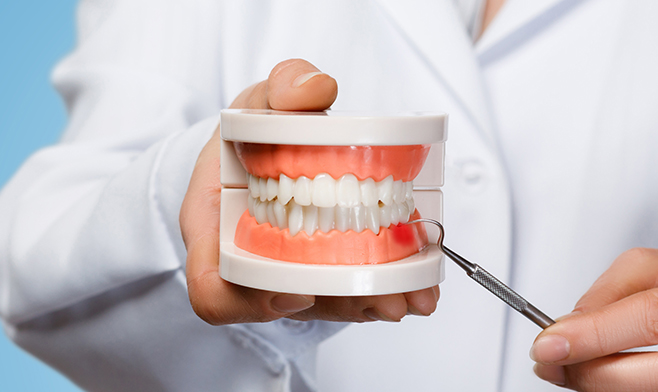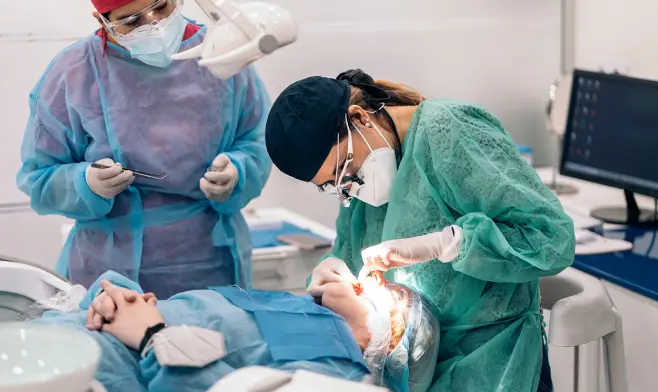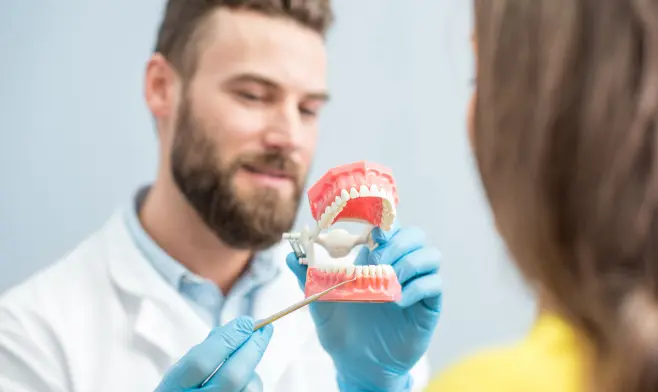Although the two may not seem closely related, there is indeed a link between diabetes and gum disease. Studies have shown that those with diabetes may be more predisposed to gum disease and other dental issues, including infections. Here’s how the two conditions may affect each other, and what you can do about it.
Can Diabetes Cause Gum Disease?
People living with diabetes have a higher risk of developing gum disease. Inefficient management of blood sugar levels can create issues with the heart, blood vessels, nerves, kidneys, eyes, and feet.
Since high blood sugar levels can harm the blood vessels, it can also cut the supply of oxygen and nutrients to the gums, increasing the chances of infection in the gums and bones. Uncontrolled blood sugar levels can also increase the glucose level in the saliva, thus creating a breeding ground for bacteria, which are the primary cause of tooth decay and gum disease.
If diabetes is left untreated, it can take a toll on your mouth as well:
- Your mouth may feel excessively dry
- Gums may be inflamed and bleed often (gingivitis)
- You might be susceptible to mouth infection
- Your gums might feel sore or tender to the touch
Over time, the condition may worsen, particularly if you don’t schedule regular dental cleanings and checkups. Chronic gingivitis can eventually lead to periodontitis, a more serious form of gum disease.
Gum Disease Symptoms
Gum disease is an infection that affects the soft tissue in your mouth and can destroy the bones that hold your teeth in place. Diabetes can also increase the amount of glucose in your saliva, leading to more bacterial growth and plaque build-up. If not properly managed, these issues can eventually lead to gum disease.
These are the most common symptoms of gum disease:
- Red or swollen gums
- Tender or bleeding gums
- Receding gums
- Loose or separating teeth
- Persistent bad breath
- Pus between the teeth and gums
- A change in bite and jaw alignment
Why People With Diabetes Are More Prone To Gum Disease
If you have uncontrolled diabetes, your risk of infection and other complications increases with any procedure, including more advanced dental work like getting a tooth pulled or having a dental implant placed. This is just one reason why managing your diabetes is so important, and actually, practicing good oral health habits is one way to prevent that. Systemic conditions like diabetes can also increase the risk of infections around dental implants by impairing healing and immune response.
Fortunately, those who see the dentist and address any current issues related to gum disease or inflammation often see their blood glucose levels respond positively almost immediately.
How to Prevent & Treat Gum Disease Associated with Diabetes
The treatment of periodontal disease in people with diabetes who have good control of blood sugar can be just as successful as in patients who do not have diabetes. Improving blood sugar control can improve the outcome of periodontal treatment in people with diabetes.
There is also evidence that treatment of periodontal disease can result in improvement in blood sugar control in people with poorly controlled diabetes and reduce the risk of the other complications of diabetes.
Here are a few ways you can help prevent gum disease:
- Control your blood sugar levels
- Use diabetes-related medications as directed
- Limit sweets and sugar in your diet
- Avoid smoking and drinking alcohol
- Maintain good oral hygiene
- Brush teeth twice a day
- Floss daily
- Use a fluoride toothpaste
- Schedule regular dental cleanings (2 times per year)
- Use a cleansing mouthwash
- If you use dentures, clean daily
Dr. Khansari recommends that patients undergoing periodontal treatment should have a frequent teeth cleaning/ periodontal maintenance of every three months post surgery with alternating between our office and their general dentist, because it can significantly affect your oral health. At home, you can also establish excellent daily oral health habits.
Here in San Diego at Poway Perio, under the experience of Dr. Khansari MSD, we are happy to help you fight periodontal disease associated with diabetes, and get your teeth and gums back to good health with regular periodontal maintenance. If you have more questions or would like to book a consultation, we’re happy to discuss your individual situation. Just give us a call at 858-679-0142.





